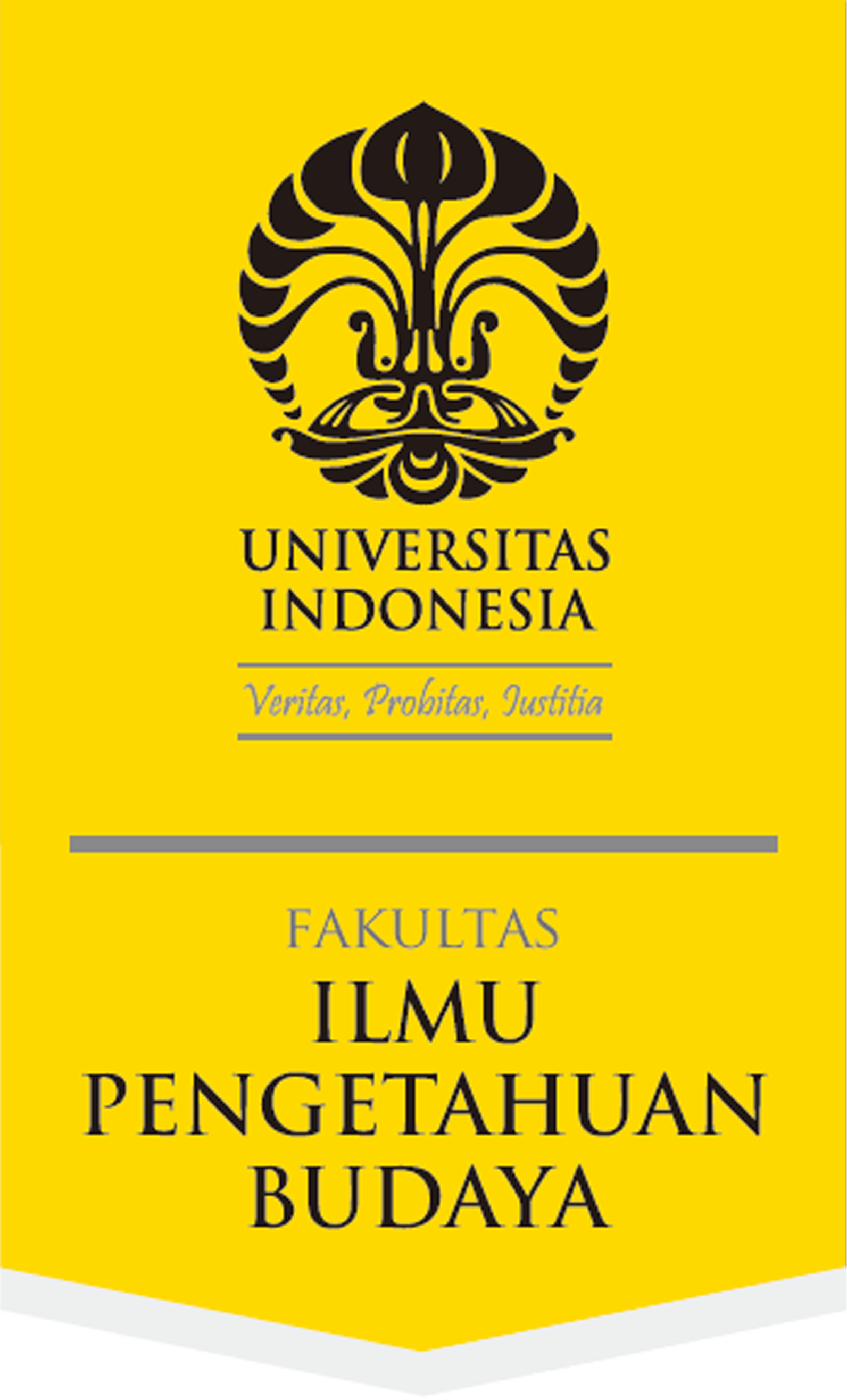Abstract
This article explores the relationship between literature and the history of Japanese society. The study shows that many literary works reflect the dynamics of culture, economics, ideology, and thoughts in Japanese society. Based on the, the writer believes that those literary works are useful to understand the spirit of age (Zeitgeist) in Japanese history. The writer also deals with the issues of globalis which play important part in Japanese literary discourse, particularly in multiculturalism theme.
References
Aston, W.G. (1979), A History of Japanese Literature. Tokyo: Charles E. Tuttle Company.
Gessel, Van C. dan Tomone Matsumoto (ed.) (1989), The Showa Anthology: Modern Japanese Short Stories. Tokyo: Kodansha Int.
Japan Echo (1999), Desember.
Keene, Donald (1970), Modern Japanese Literature from 1868 to Present Day. Tokyo: Charles E. Tuttle Company.
Kokusai Bunka Shinkokai (1972), Introduction to Contemporary Japanese Literature 1956-1970: Synopsis of Major Works. Tokyo.
Suichi Kato (1979), A History of Japanese Literature: The First Thousand Years (terj. Paul Norbury). Tokyo: Kodansha.
Surajaya, I Ketut (1984), Sejarah Pergerakan Demokrasi Jepang. Jakarta: UI Press.
Surajaya, I Ketut (1990), Makna Modernisasi Meiji bagi Pembangunan Indonesia. Jakarta: Ksaint Blanc.
Surajaya, I Ketut (1995), Demokrat Yoshino Sakuzoo: Penentang Gigih Anarkisme, Sindikalisme, Fasisme, dan Komunisme Jepang pada Zaman Taisho. Depok: Fakultas Sastra Universitas Indonesia.
Suzuki Sadami (1994), “Three Themes and a View Point of View: For Rewriting of Japanese Modern and Contemporary Cultural and Literature History,” Japanese Review, No.5, h.125-44.
Tomiako Kinichiro (1999), “The Legacy of a Great Literature Critic,” Japan Echo, December, h. 34-8.
Recommended Citation
Surajaya, I Ketut
(2002)
"Karya Sastra Jepang dalam "Zeitgeist" Sejarah,"
Wacana, Journal of the Humanities of Indonesia: Vol. 4:
No.
2, Article 7.
DOI: 10.17510/wjhi.v4i2.331
Available at:
https://scholarhub.ui.ac.id/wacana/vol4/iss2/7









